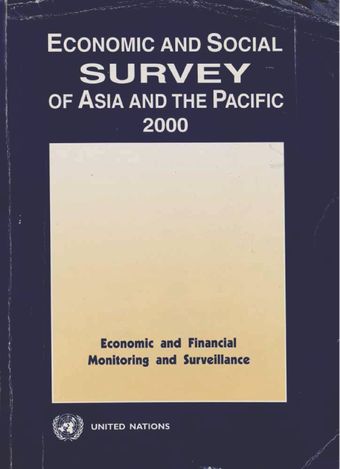Recommendations

- Author: United Nations Economic and Social Commission for Asia and the Pacific
- Main Title: Economic and Social Survey of Asia and the Pacific 2000 , pp 235-238
- Publication Date: August 2000
- DOI: https://doi.org/10.18356/426d7385-en
- Language: English
The Asian crisis in 1997 and subsequent ones in Brazil and the Russian Federation highlighted the changed world economic and financial environment within which nation states and enterprises operate today and exposed the limitations of the existing international financial order. They demonstrated very clearly that financial integration, and more broadly, globalization, is a two-edged sword. Integration allows economic agents from economies with liberalized financial sectors to tap into the world’s savings; but it also exposes such economies, particularly if they have underdeveloped institutions (both markets and supervisory agencies), to the vagaries of market volatility, largely as a result of sudden shifts in investor expectations. Of course, the factors that lead to instability in financial markets are not all externally driven. Inappropriate policies, such as the maintenance of overvalued exchange rates and poor sequencing of the capital account liberalization, which are determined at the national level, also play an important role. In addition, poor corporate governance and inadequate financial system supervision can contribute to the build-up of vulnerabilities.
-
From This Site
/content/books/9789210598941s005-c004dcterms_title,dcterms_subject,pub_keyword-contentType:Journal -contentType:Contributor -contentType:Concept -contentType:Institution105


